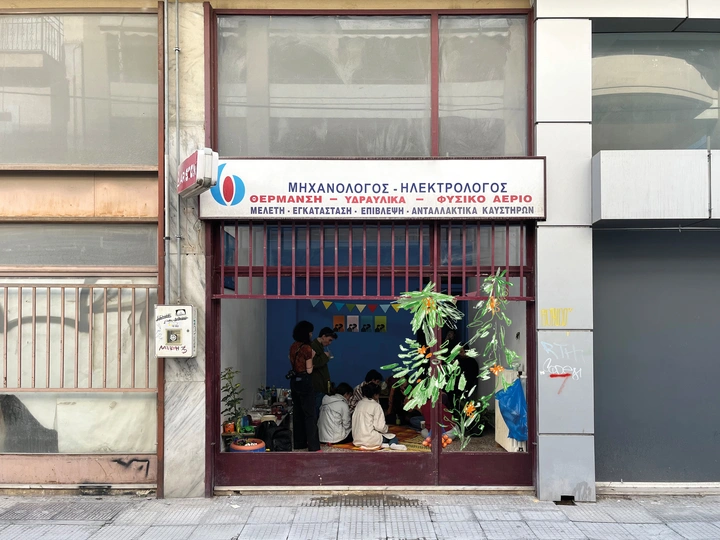New Ground Floors

Anastasia Tsioptsia
We are a team of two, currently based in Athens, but have also worked and lived in Poznan and Berlin. We started collaborating in 2019, during our studies in Architecture at the University of Thessaly, in Volos. Our thesis project titled "New Ground Floors" was Shortlisted for the EUMies Yound Talent 2025 Award. Our interests revolve around the transformation and repurposing of existing buildings and the reuse of materials. Through our projects, we try to explore ways in which the typical Greek "Polykatoikia" could meet today’s needs, while focusing on the social aspect of architecture.
Combining professional experience surrounding material reuse, participatory processes, feminist urban planning and working within European funded projects, we aim to work within and for communities by engaging and designing with them.
We have supported leading and organisation of two workshops surrounding material reuse, "Layers of Permanence" in Volos, Greece and "Niteshop" at the Horst Atelier 2025, while part of the Baukreisel team. We have also worked on self-initiated research projects by mapping and photographing everyday practices, assemblage and the banality of everyday life, leading to the production of small zines/ publications.
In recent years, in the city of Volos, Greece, empty ground-floor shops have been converted into residences. Shop windows are replaced by walls, with a door and window. Neighbourhood practices and networks of relationships are called into question, as is the ambiguous identity of the shop, which blurs the boundaries between the private space of the 'Polykatoikia' and the public street. The inhabitants of these new homes are usually students, whose housing needs are not currently met by the available university accommodation.
This project examines an alternative model of student accommodation, scattered throughout the urban fabric. We propose the conversion of unused ground-floor shops into student residences. Piloting a different approach to the reuse of this building stock, we try to combat the problem of lack of university dormitories in Volos, which exists alongside the broader housing crisis. A junction, including different shop typologies, was selected as an applied example that could be spread across the city. The proposal is based on the principles of cohabitation and sharing, comprising a dense network of spaces and human relationships. In terms of design, bedrooms and bathrooms create a compact core at the back, while at the front are intermediate, semi-outdoor, communal meeting spaces that function as a bridge between the privacy of the bedroom and the public street. In combination with these housing units, we propose additional communal spaces. In order to experience our proposal under real-life conditions, we looked for an unused ground-floor shop. When we eventually found a property, instead of bargaining for space through the rental market, we proposed a deal rooted in care - offering to clean it and replace the broken window in exchange for access. It functioned first as a place for us and our friends to study and gather and later opened up to the neighbourhood, hosting a multitude of people and things.